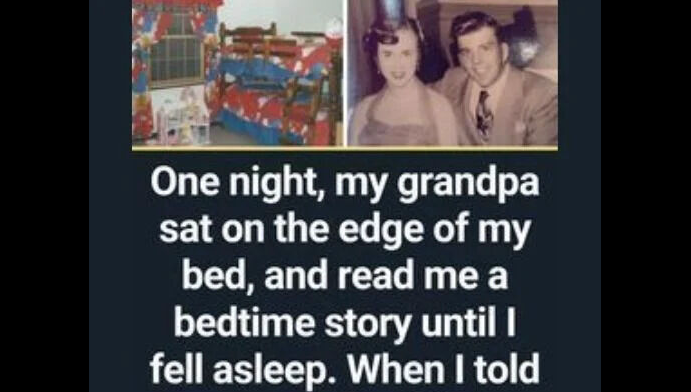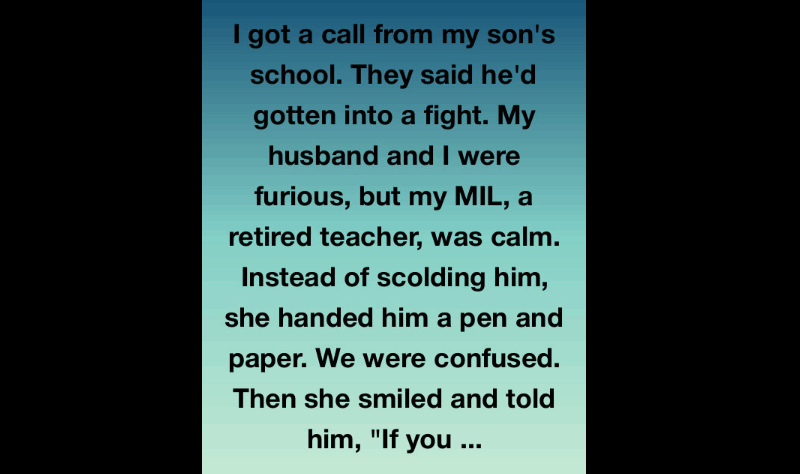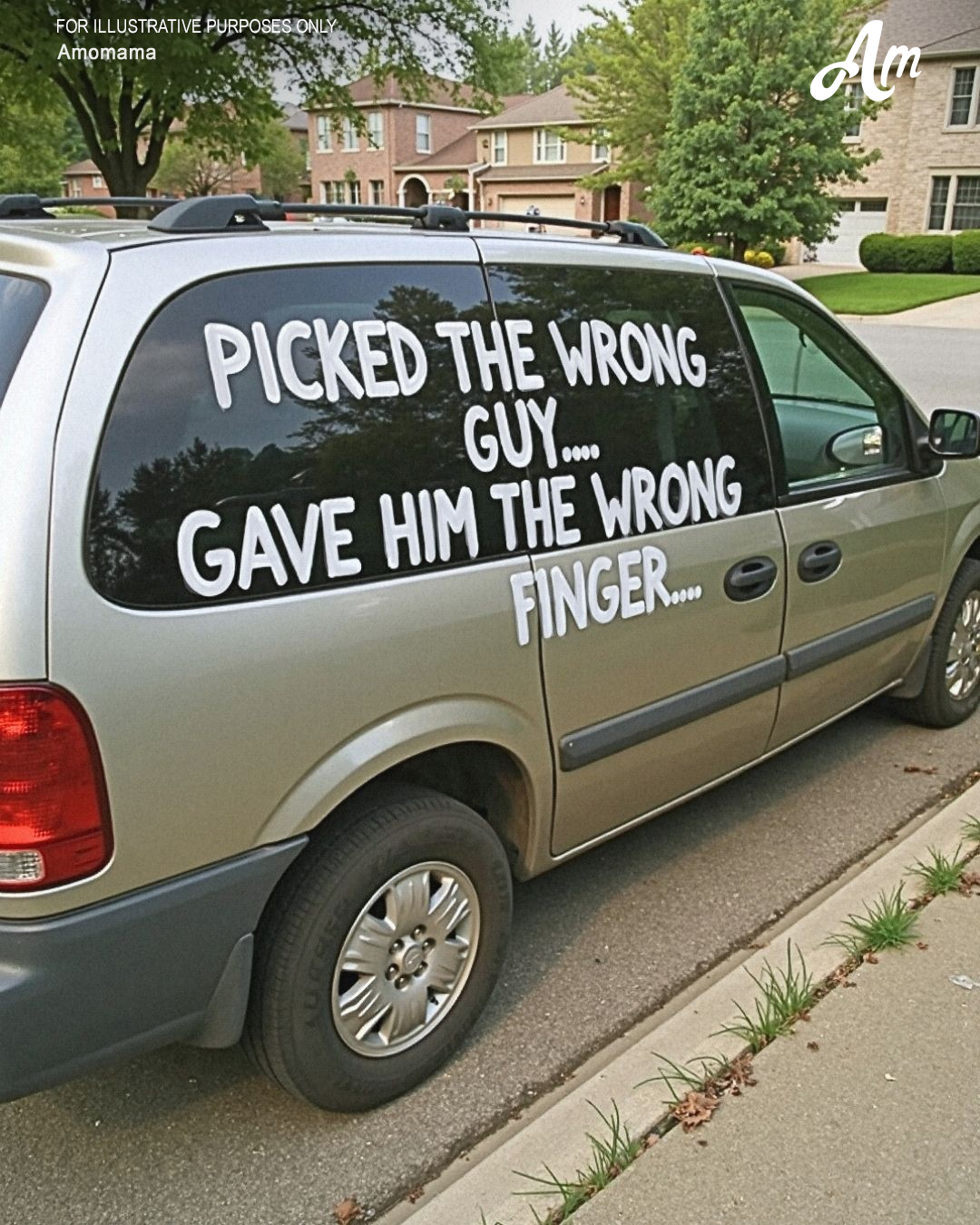When I was six, I woke to the familiar comfort of warm sheets, the gentle glow of my nightlight, and the soft creak of my bed as someone settled at its edge. I opened my eyes and saw him—Grandpa Emil, dressed in his familiar corduroy vest, carrying the comforting scent of pipe tobacco and spearmint.
He read The Velveteen Rabbit to me, his gravelly voice wrapping around the words in a way that always made me smile. I drifted off to sleep, content. The next morning at breakfast, I shared the moment with Mom as I poured syrup over my waffles. “Grandpa read me a story last night,” I said cheerfully.
Mom paused, spatula frozen in midair. “You said Grandpa?” she asked, her voice soft and strained.
“Yes,” I replied. “He sat right at the edge of my bed, like he always did.”
The spatula slipped from her hand, clattering to the floor. I expected her to scold me, but instead, she stared, her face pale. Then she grabbed the phone, her hands trembling.
“Mom,” she said when Grandma picked up, “it’s happening again.”
She stepped out, but I caught fragments of their conversation: “Exactly like before.” “I swear, it’s true.” “Yes, right on the bed.”
That afternoon, Grandma arrived, looking weary and older than I remembered. She carried a shoebox filled with photographs and sat me down. “Point to who you saw,” she said gently.
I sifted through the photos and picked one out, certain it was Grandpa Emil. But Grandma’s face crumpled as she whispered, “Oh god.”
“What’s wrong?” I asked, confused.
Mom’s voice was soft but heavy. “Sweetheart, that’s not Grandpa Emil.”
I blinked, staring at the photo. “But it was him. He wore that vest and smelled like mints.”
Grandma’s lips tightened as she studied the picture. “That’s someone I haven’t thought of in over thirty years.”
I looked at the photo again, my six-year-old mind struggling to understand. The man looked so much like Grandpa. “Then who is he?”
Grandma hesitated, then sank into a chair as if her strength had left her. Mom sat beside her, clutching her hand. “His name was Walter,” Grandma said at last. “Someone I knew before I married your grandpa.”
Mom’s voice dropped to a whisper. “He might’ve been my father.”
The room grew still, the only sound the faint ticking of the kitchen clock. “But I don’t understand,” I said. “He was here last night.”
Mom shook her head. “Honey, Grandpa Emil passed away last year. We told you he was away because we thought you weren’t ready to know.”
My throat tightened, and I didn’t know how to feel. “But I saw him.”
“I believe you,” Grandma said, her voice gentle but firm. “I do.”
They didn’t say much more that day. They tucked the photo box away and shifted the conversation, but the house felt different, as if a long-held secret had begun to unravel.
That night, I left my light on, unsure whether I wanted “Grandpa” to return. Weeks passed without another visit, though sometimes I’d catch a faint whiff of pipe tobacco in my room or find a favorite book open on my bed.
By the time I was ten, I’d pieced together parts of the story. One night, I overheard Mom and Grandma arguing. “You lied to me my whole life!” Mom shouted, while Grandma sobbed, “It was complicated, Anna. You were only a baby.”
Hidden in the dark on the stairs, I listened. Grandma had been with Walter the year before she married Grandpa Emil. She became pregnant, and no one was certain who the father was. Walter vanished—some said he fled the country, others claimed he died in a car accident, but no one confirmed his death. Grandma married Emil soon after, and Mom grew up believing Emil was her father. It wasn’t until I pointed to Walter’s photo that the truth began to surface.
That summer, something unusual happened again. While playing in the backyard, I noticed a man across the street, standing still, watching me. He wore a wide-brimmed hat and looked aged, but his posture felt oddly familiar. I ran inside to tell Mom, but when we returned, he was gone.
That evening, Grandma called. She’d been sorting through old belongings and found an unopened letter from Walter, dated 1987. In it, he wrote that he wanted to return, that he regretted leaving, and that he longed to meet Anna—my mom. The letter had been buried in a pile of papers, untouched for decades. Grandma cried, calling it her greatest regret.
Mom stayed silent. The next day, she took me to the attic. We pulled down boxes until we found the photo collection again. This time, she let me look through them slowly. When I picked up Walter’s photo, I noticed something new: handwriting on the back that read, To my girl, in case she ever wonders who I was.
I showed Mom. Her lips quivered as she read it. “Do you think he was trying to tell us something through you?” she asked.
I shrugged. “I think he wanted to be remembered.”
She nodded thoughtfully. “Maybe it’s time I remember him. For real.”
That weekend, we drove to a small town an hour away, where Walter had grown up, according to Grandma. We wandered through a cemetery until we found a modest gravestone: Walter Dale, 1949–1991. Mom stood there for a long time before whispering, “I’m sorry I never knew you.”
We left flowers, and I placed The Velveteen Rabbit by the stone.
After that visit, the strange occurrences stopped—no more creaks, no more tobacco scents, no more voices. The house felt lighter, as if a weight had lifted, as if Walter had found peace, and so had we.
Years later, as an adult, I’d hear Mom mention Walter occasionally. “He would’ve loved books,” she’d say, or, “That stubborn streak of yours? That’s from him.” It no longer felt strange; it was as if Mom had reclaimed a missing piece of herself.
The real surprise came when I was twenty-five. I took a DNA test on a whim, one of those ancestry kits. I matched with a woman named Clara in Texas. She messaged me immediately: “Hi, this might sound strange, but I think your grandfather was my dad.”
I was stunned. We talked for hours. Clara was Walter’s daughter, five years older than my mom, from another family he’d had after leaving. They, too, never knew what became of him. He’d carried a worn photo of a woman and a baby in his wallet, calling it a daughter he’d lost, but never explained further. He died alone in 1991 in a small Florida apartment.
When I shared this with Mom, she cried—not out of pain, but from a sense of resolution. She and Clara met soon after, embracing like long-lost sisters, as if a thread of their lives had finally been woven together.
I still think about that night when I was six, when a man I never knew sat on my bed, read me a story, and set our family on a path to truth. Maybe he only wanted to be remembered, or perhaps he was trying to tell the story he never finished. All I know is that the past sometimes returns—not to unsettle us, but to mend what’s been broken.
If you’ve ever felt a presence or a sign from someone who’s passed, what was it like? Share your story below. And if this story resonated with you, please like and share—it might help someone else find a piece of their own history.




